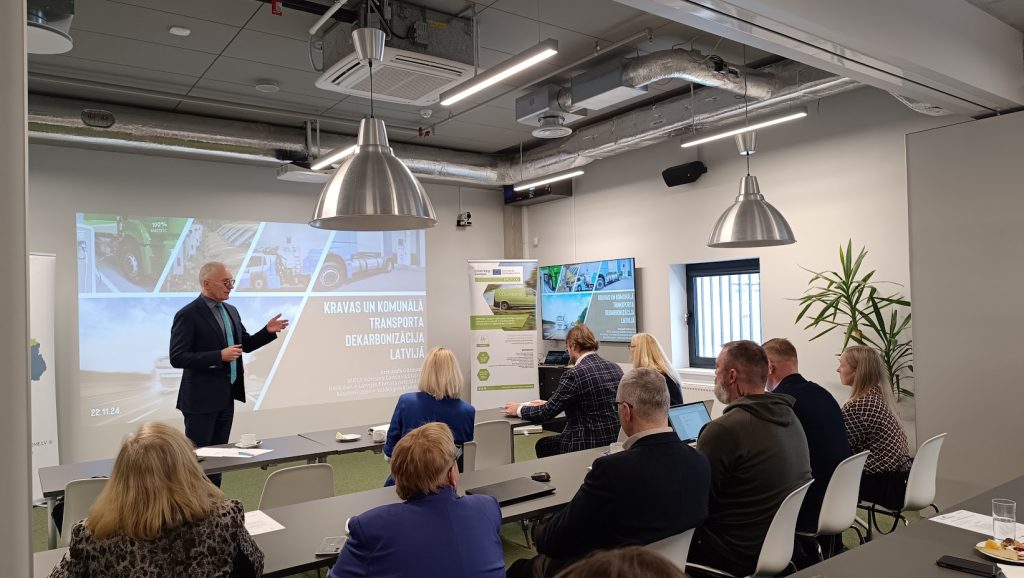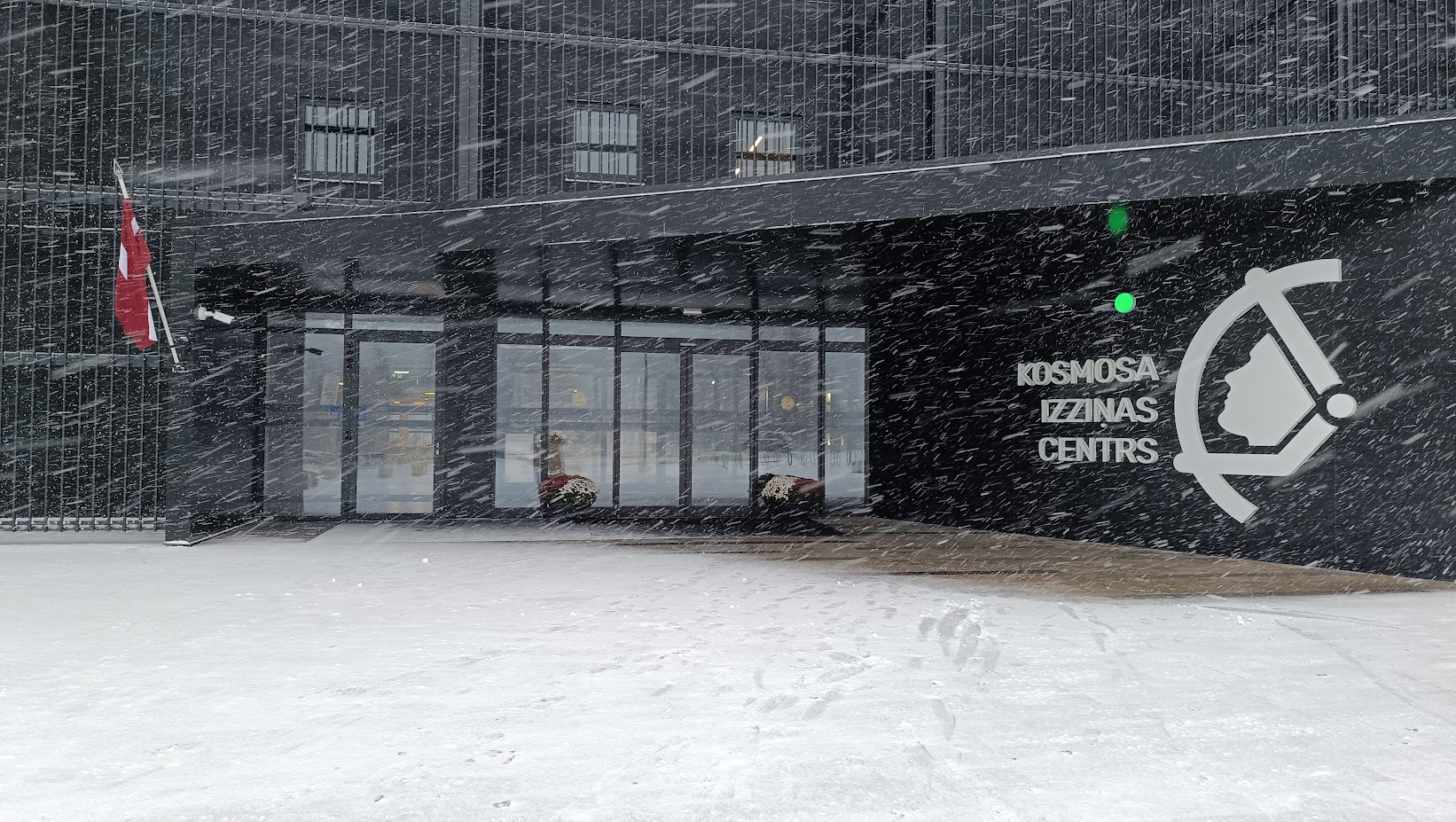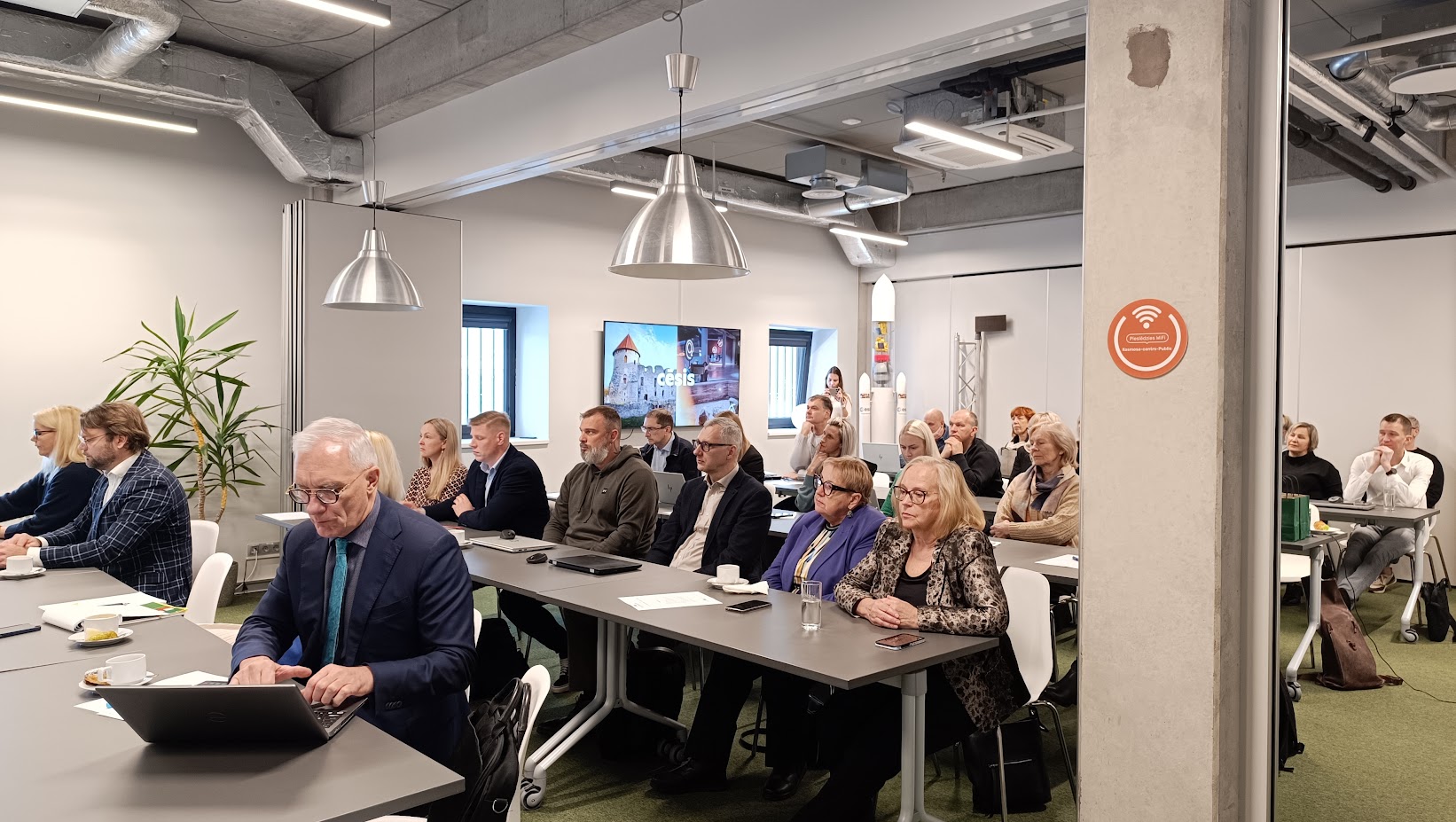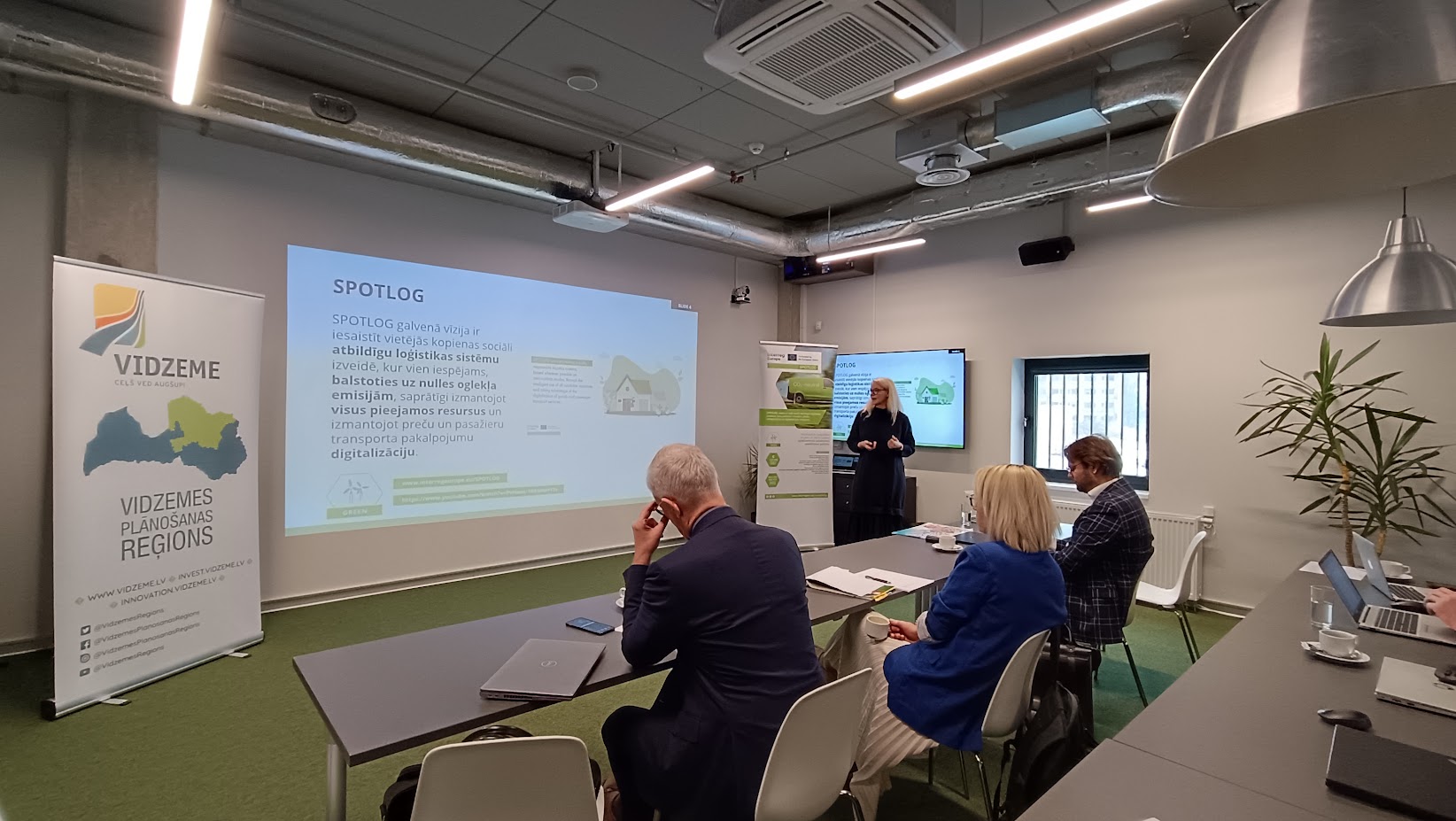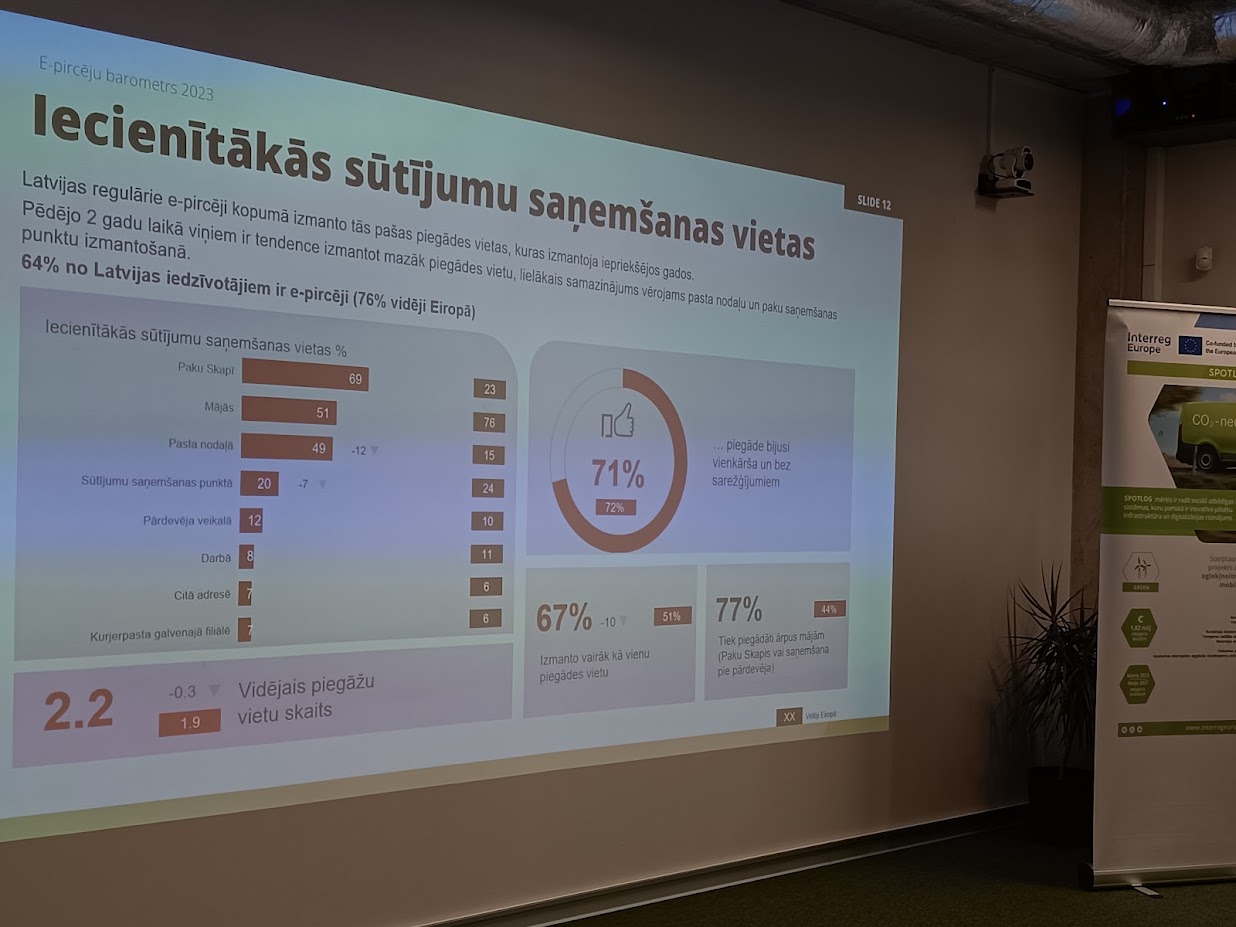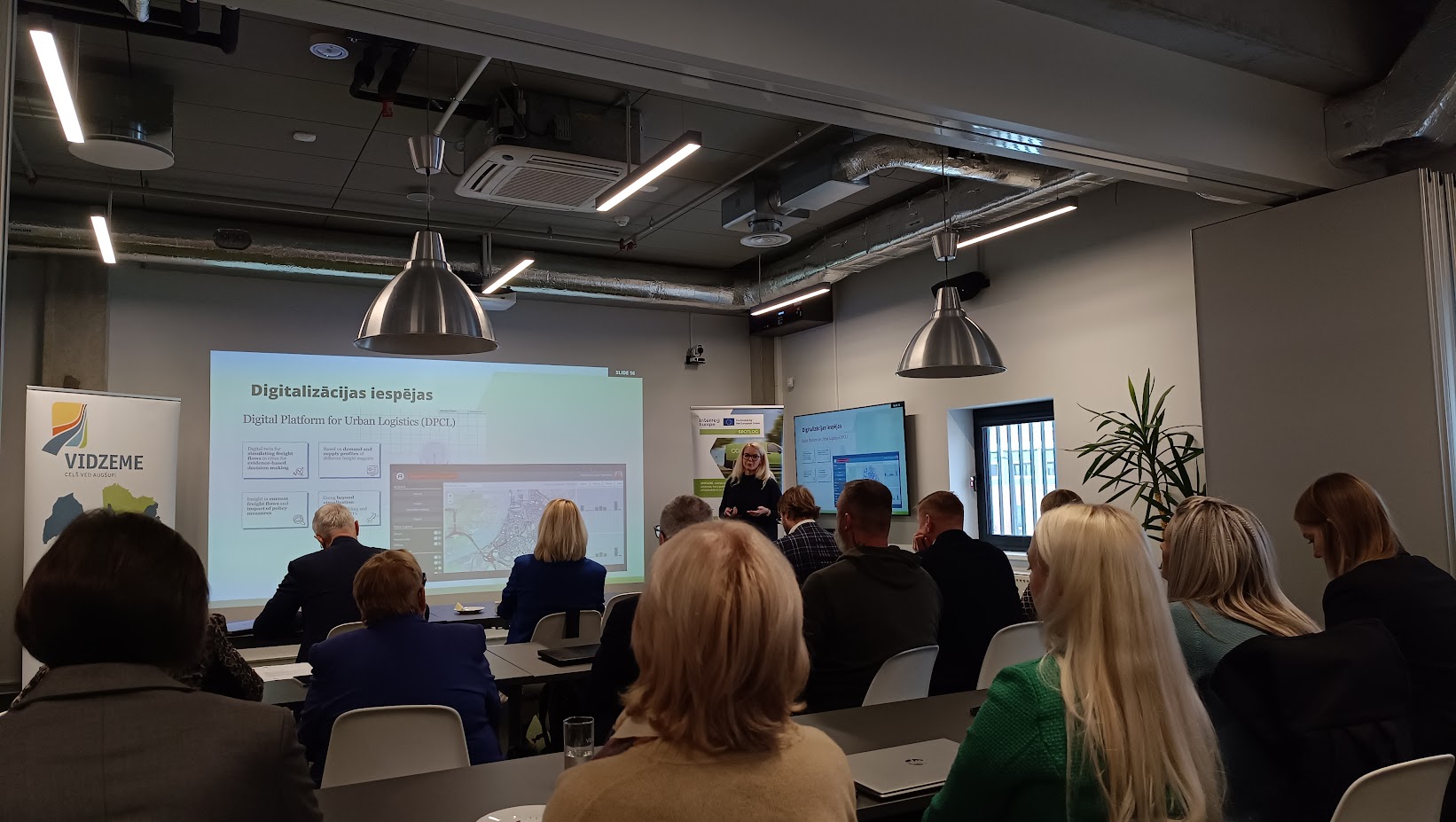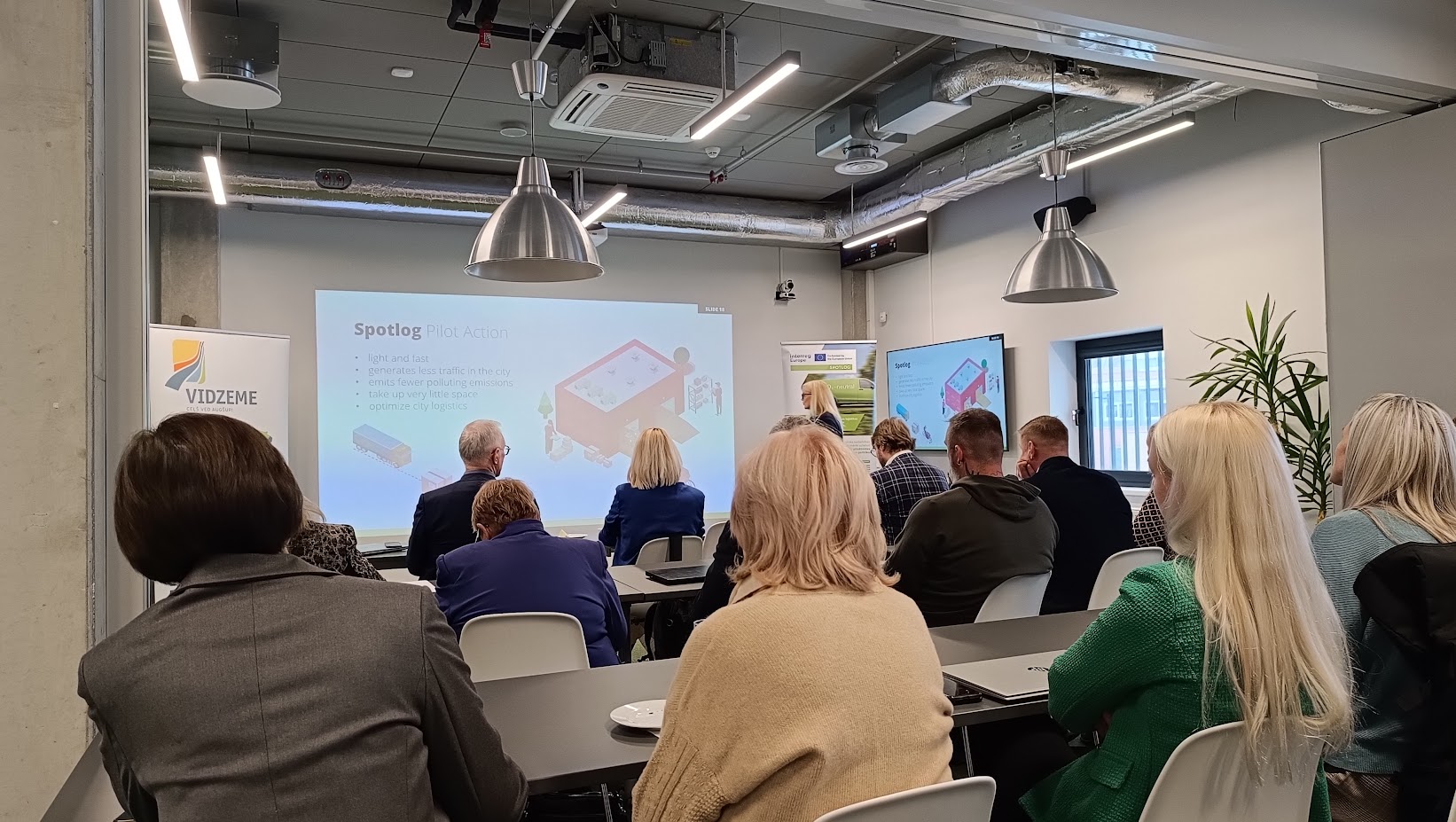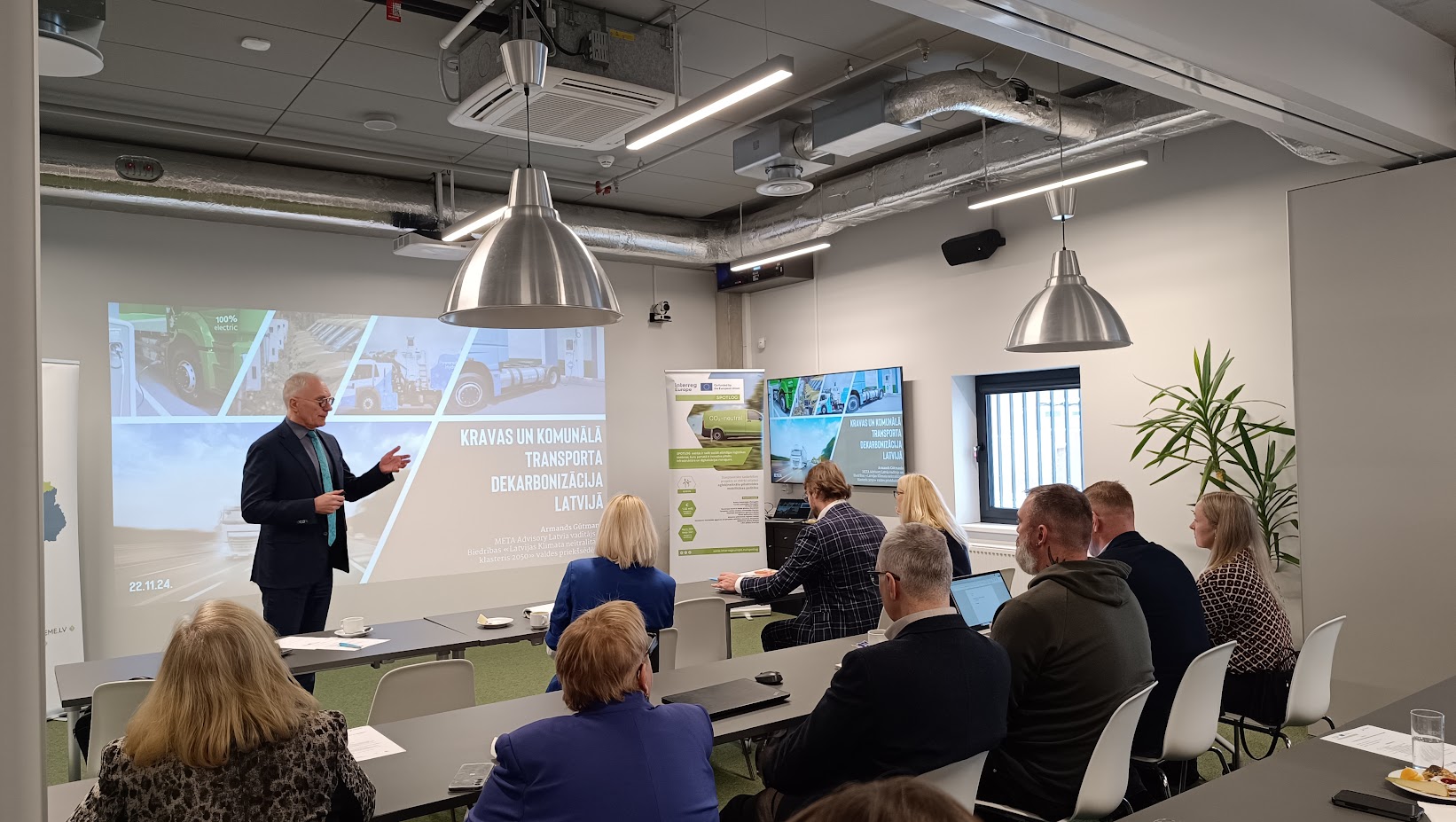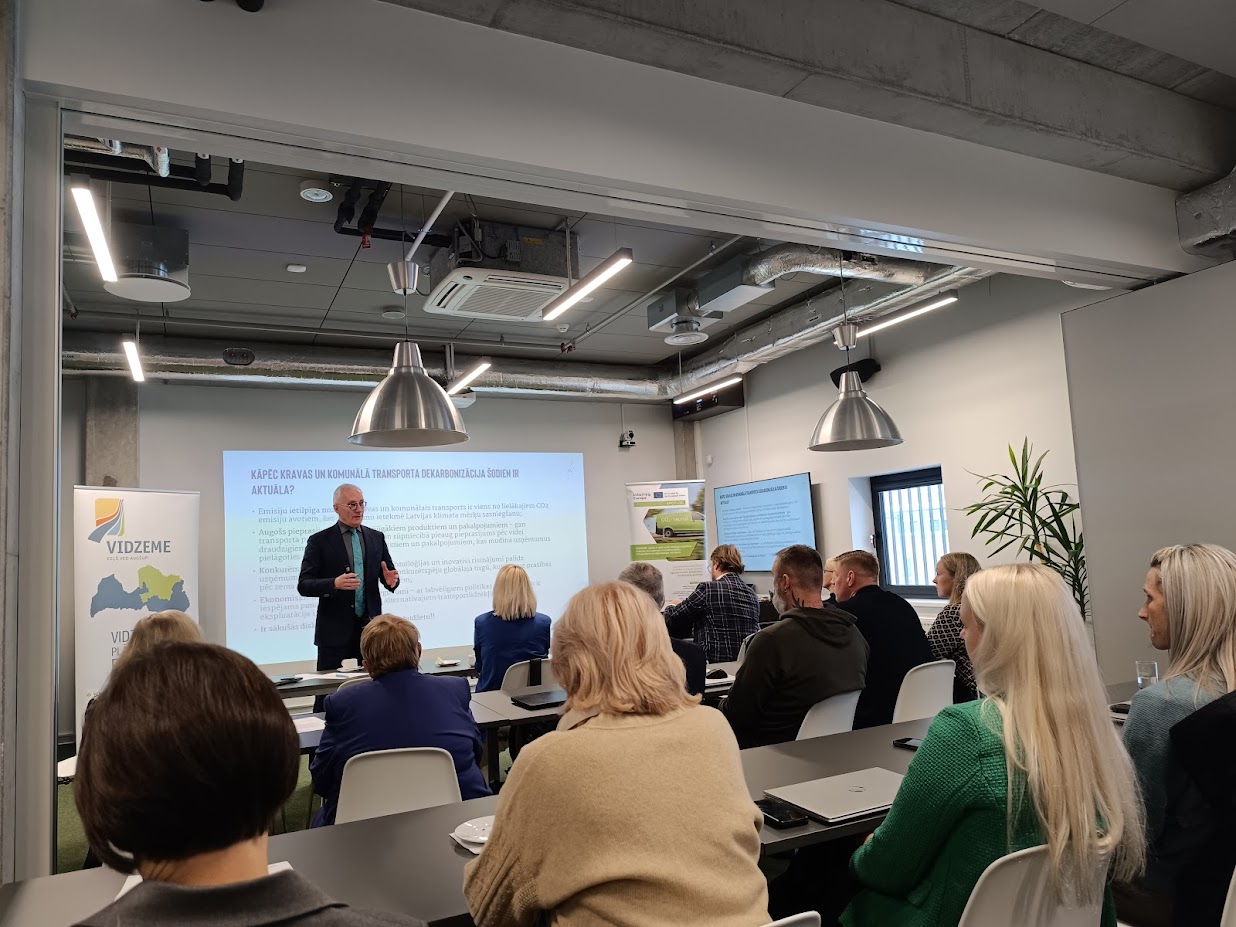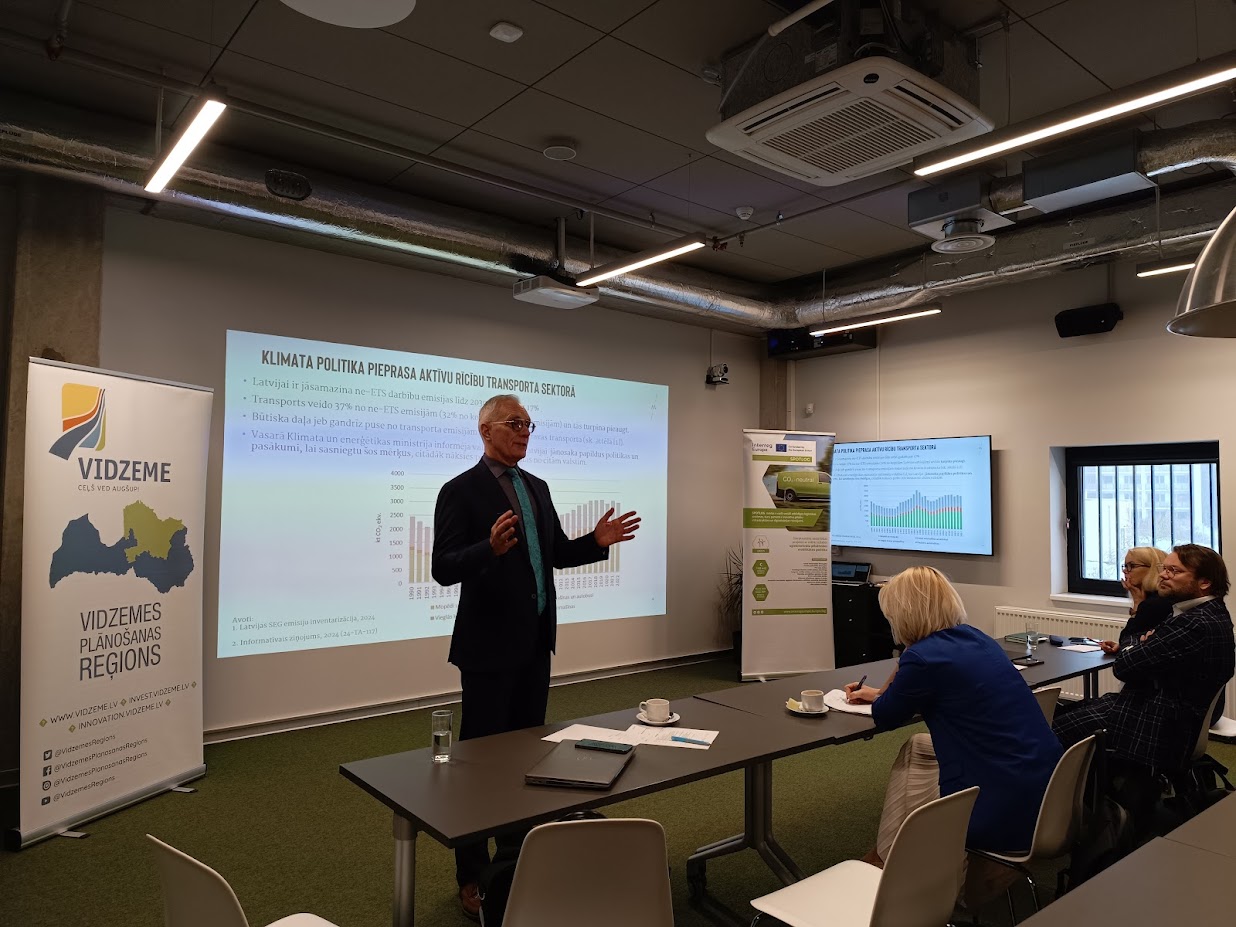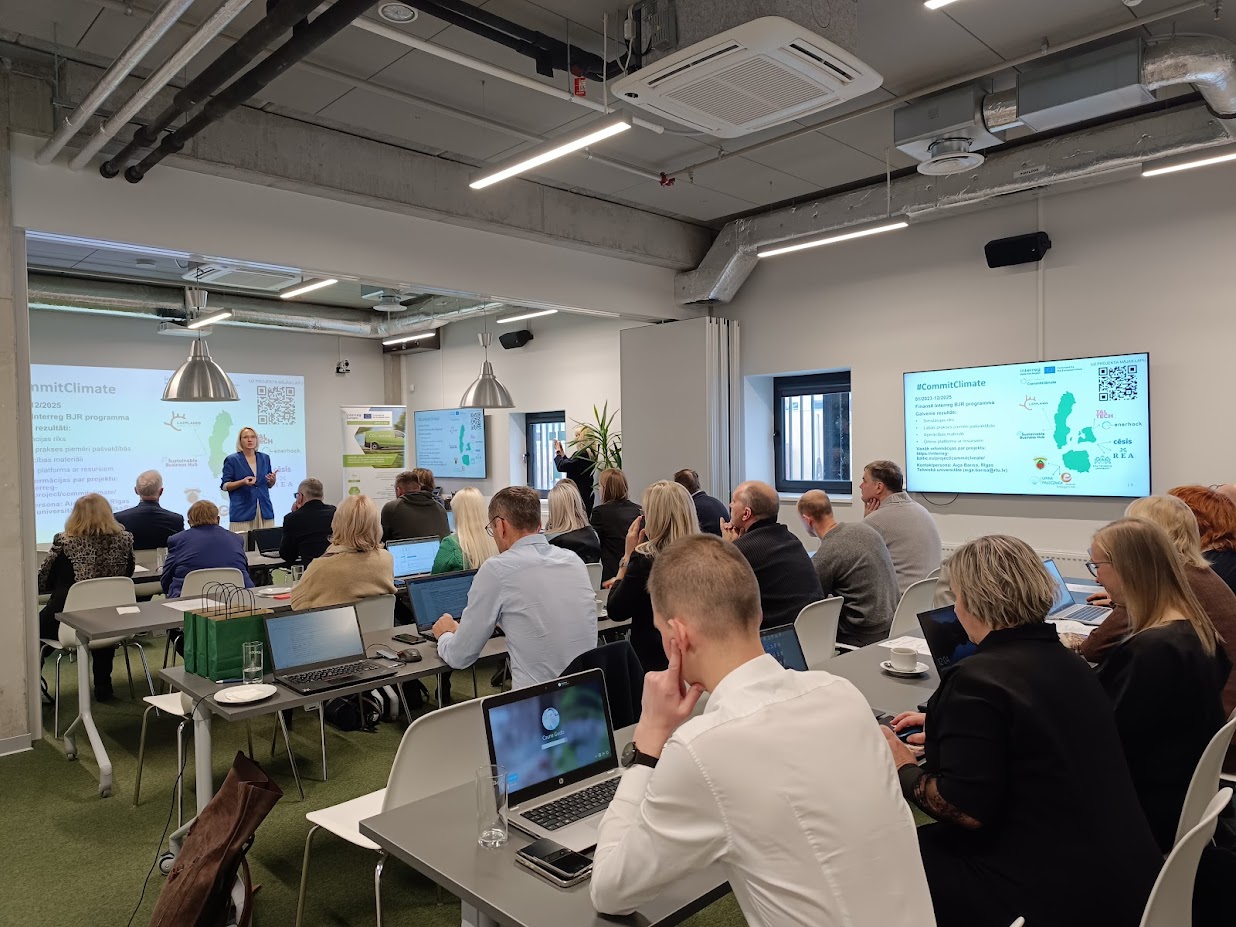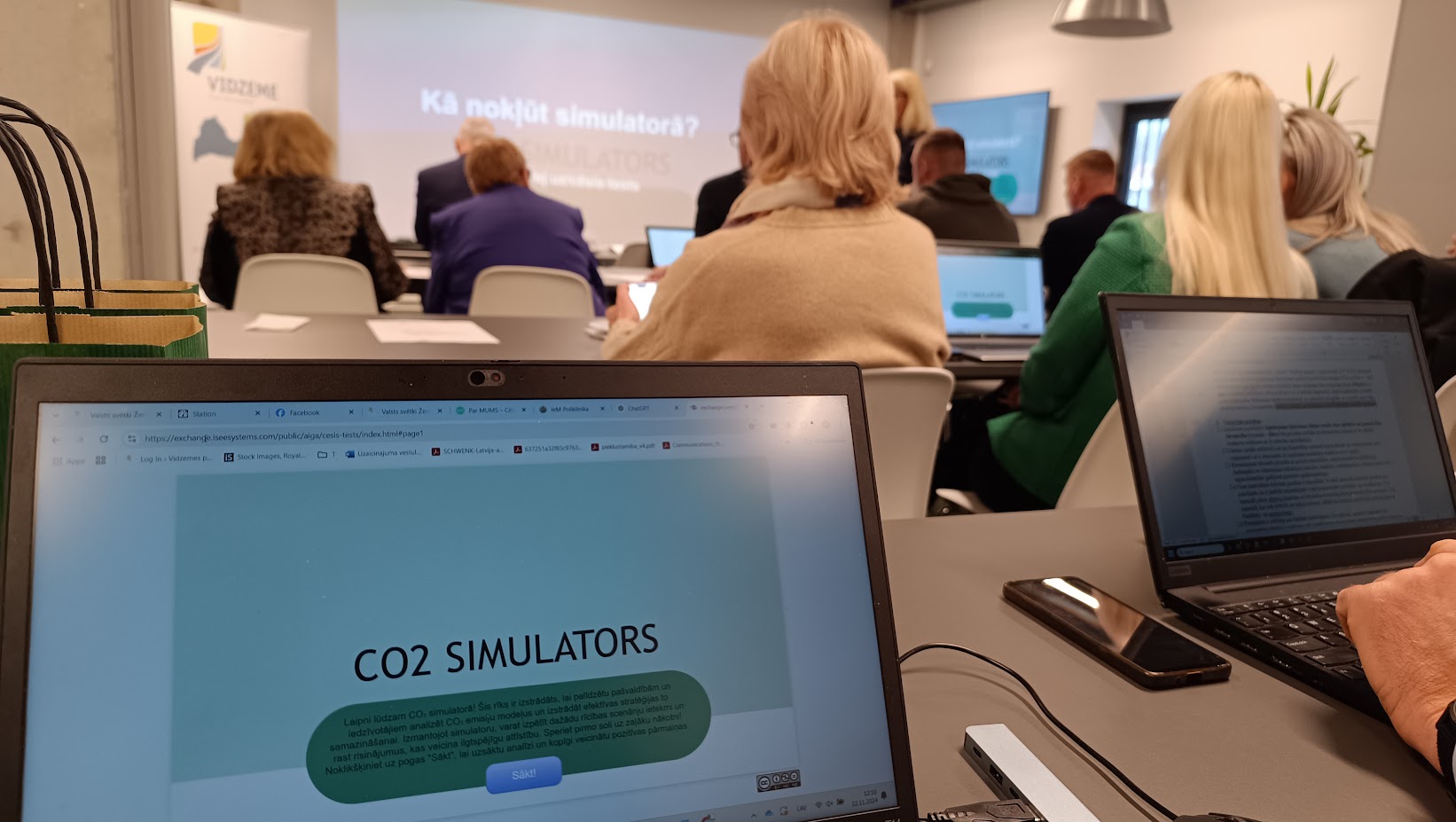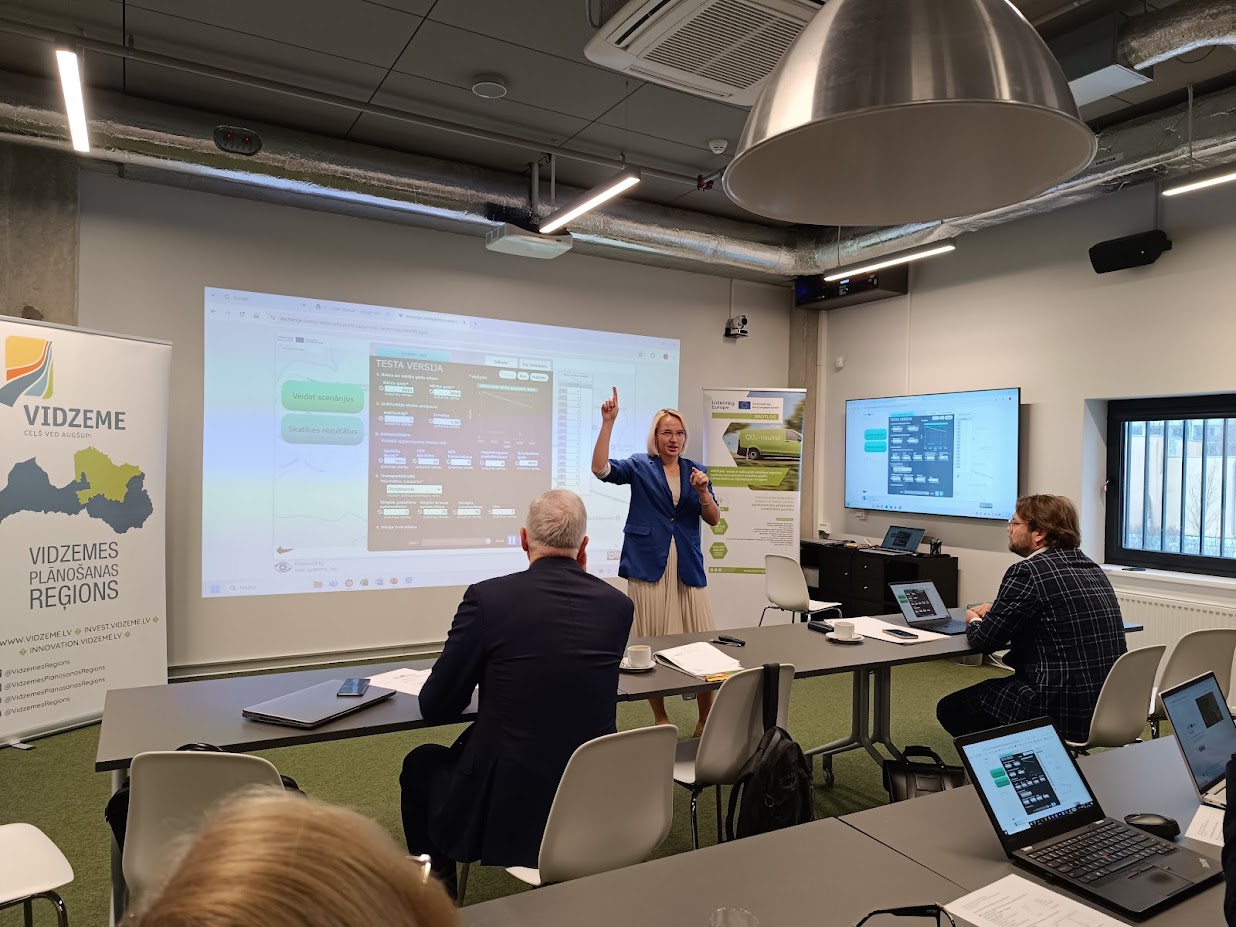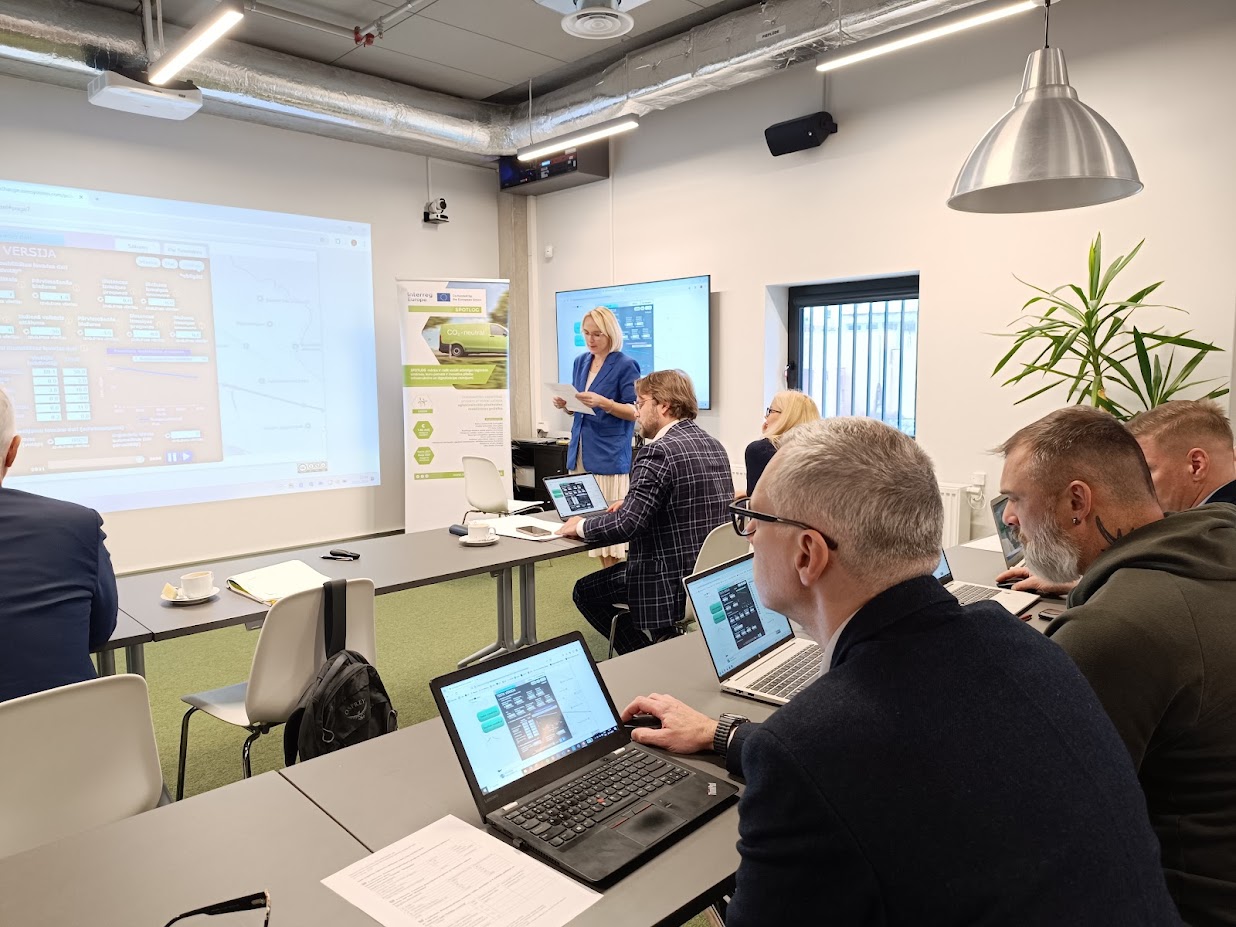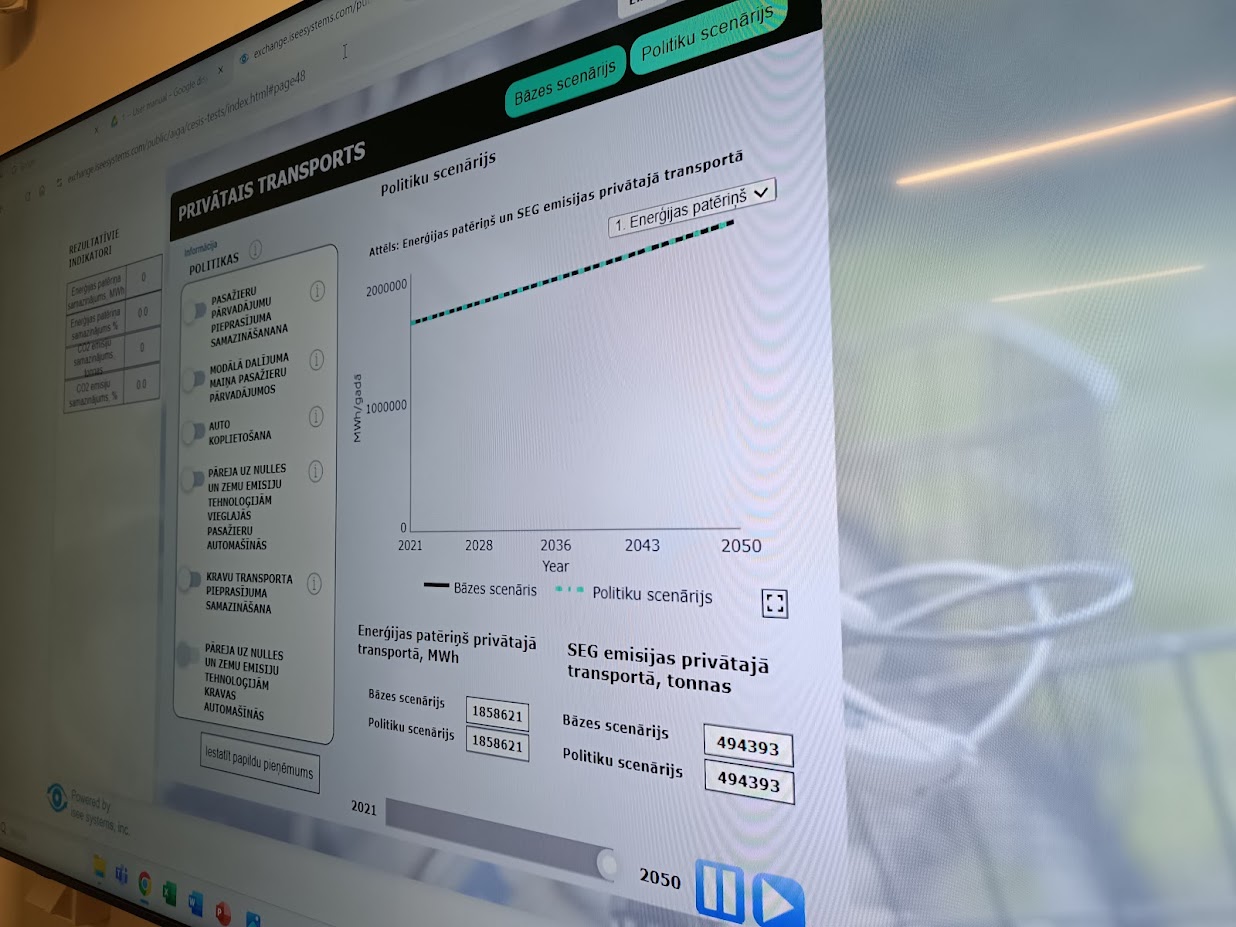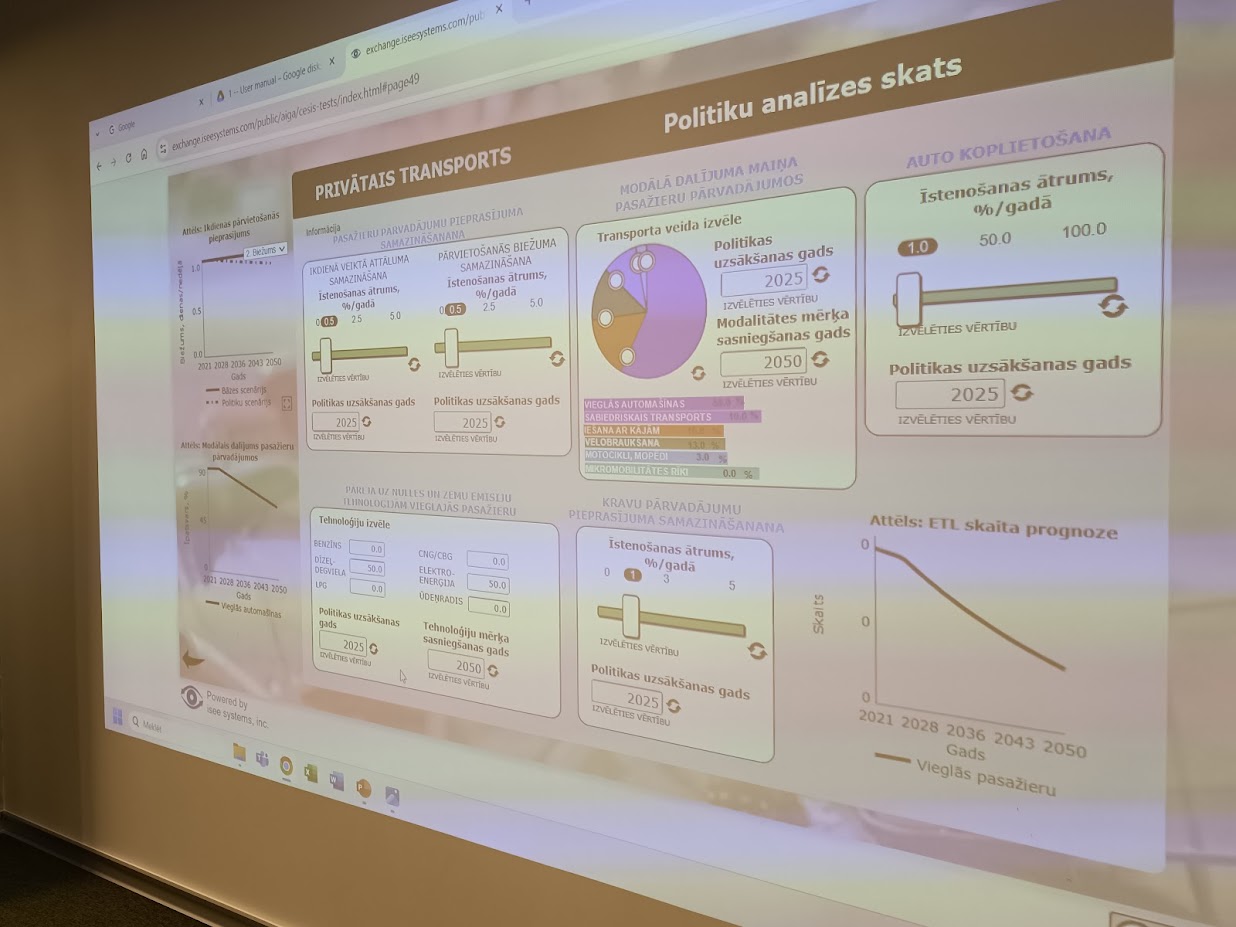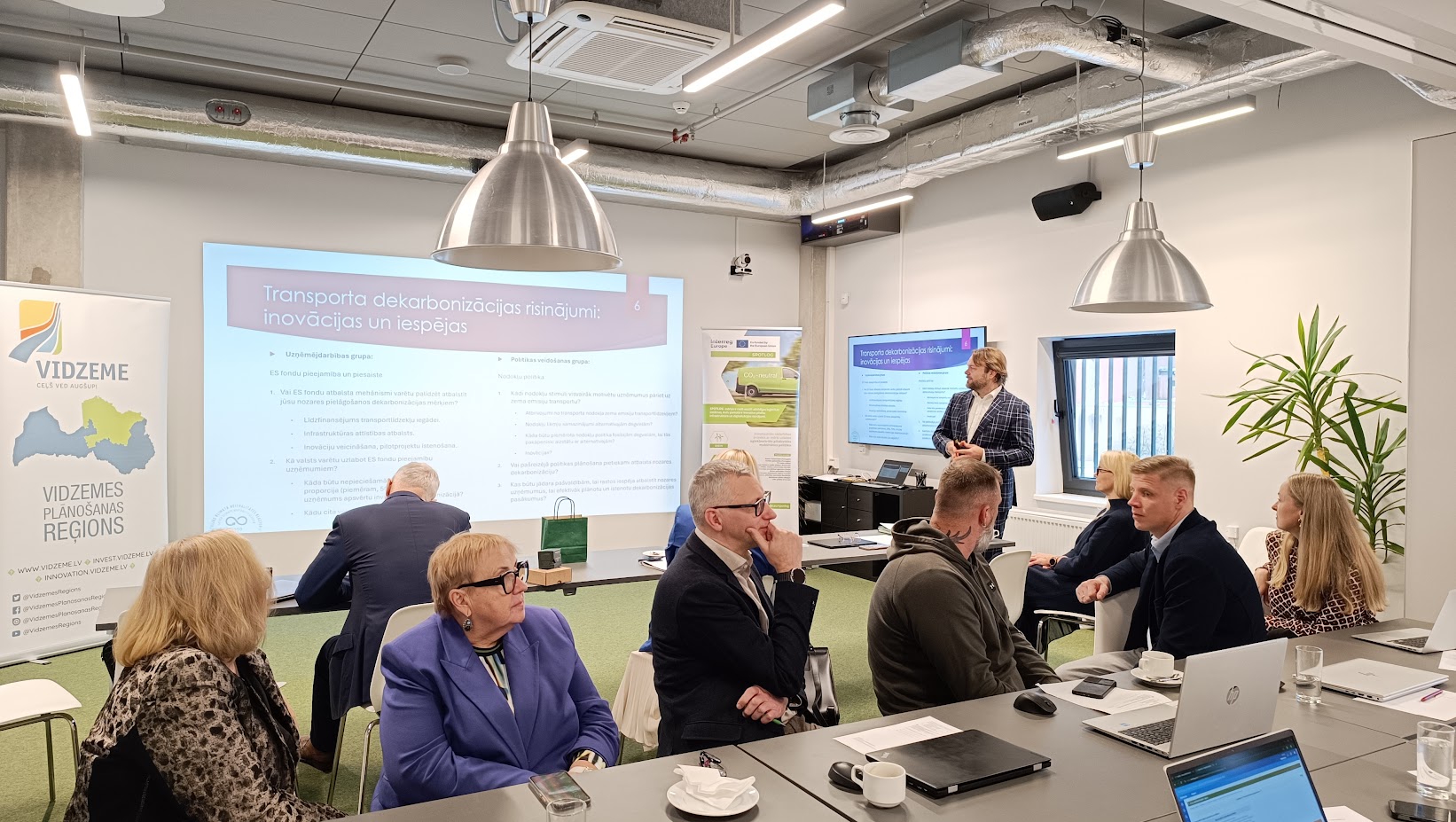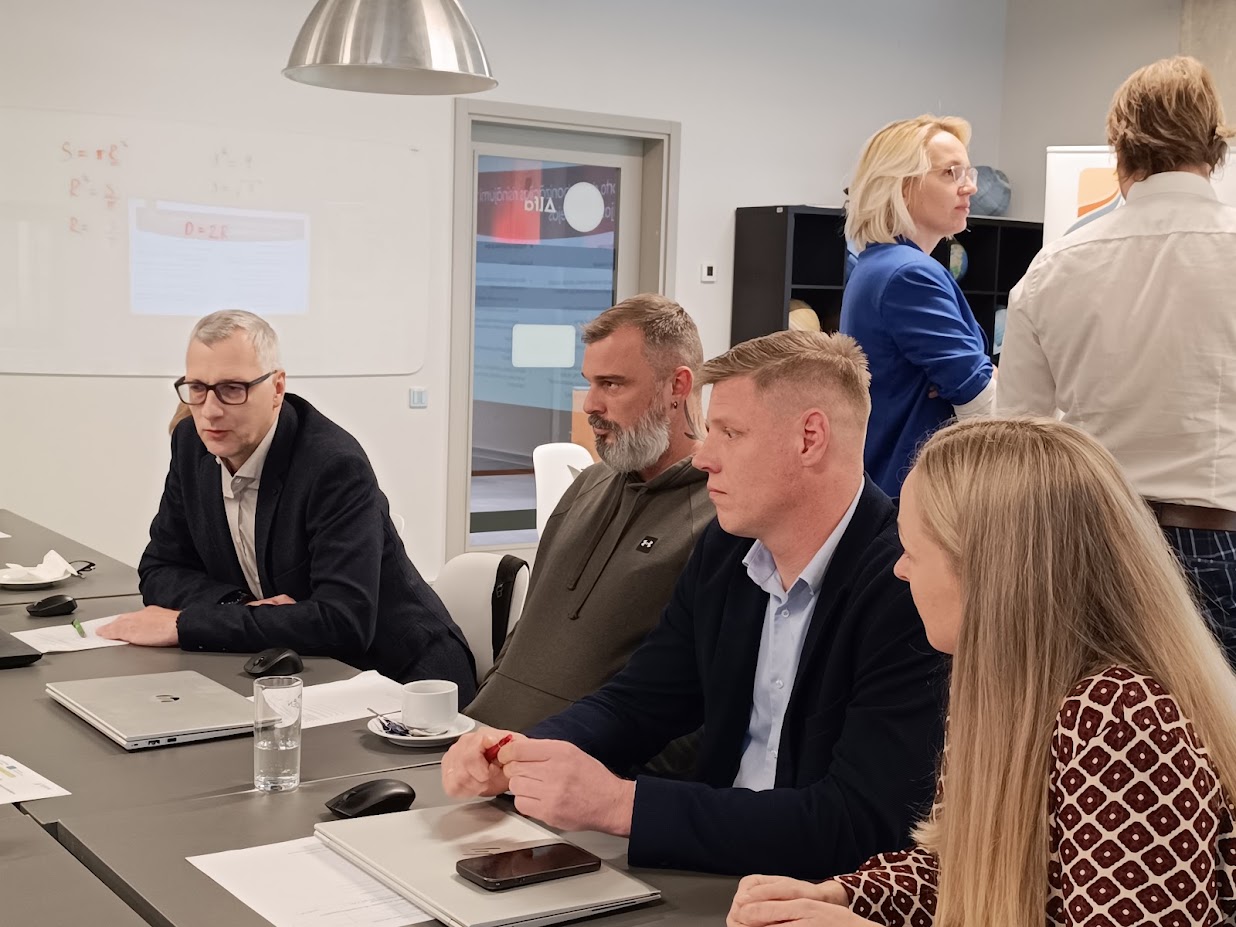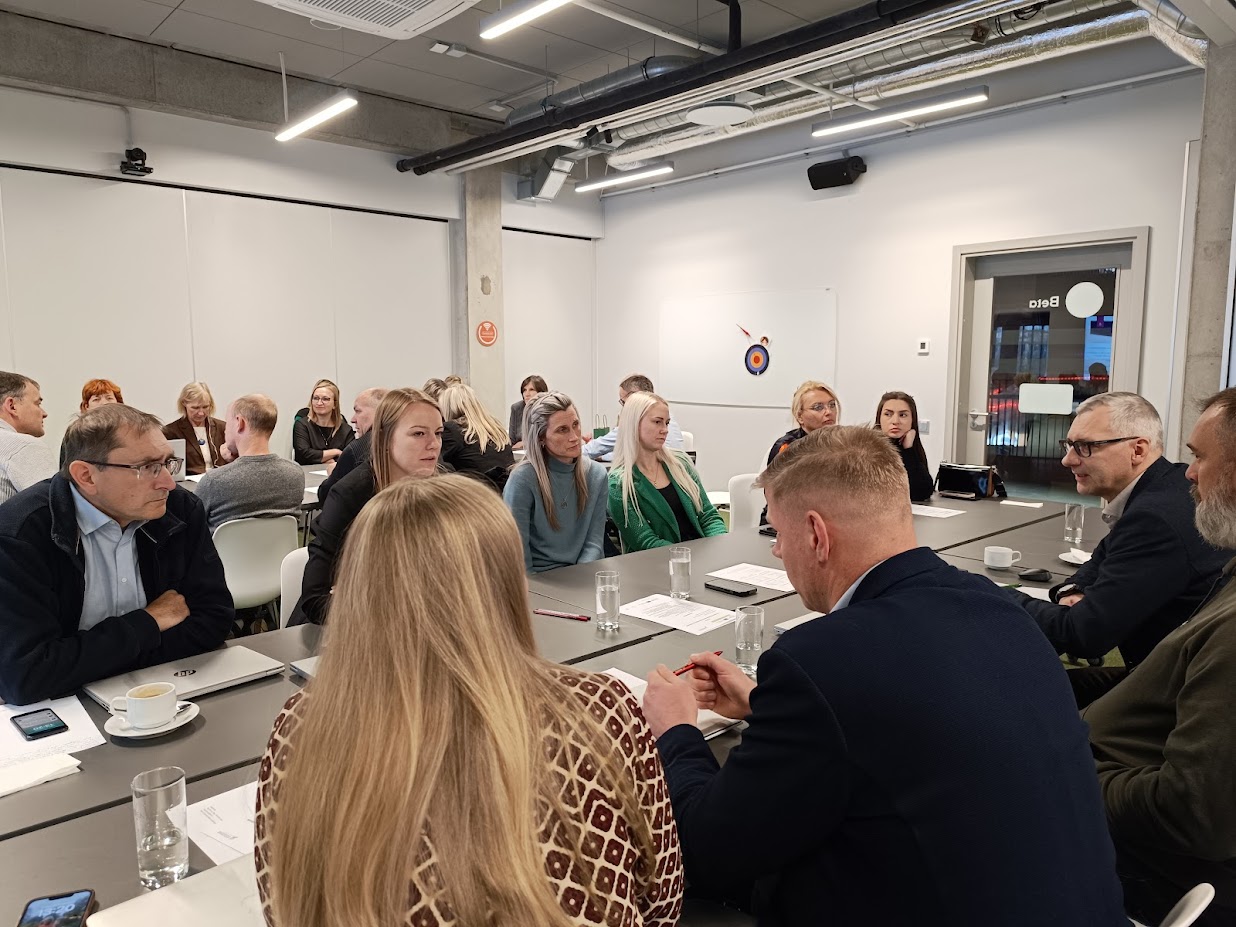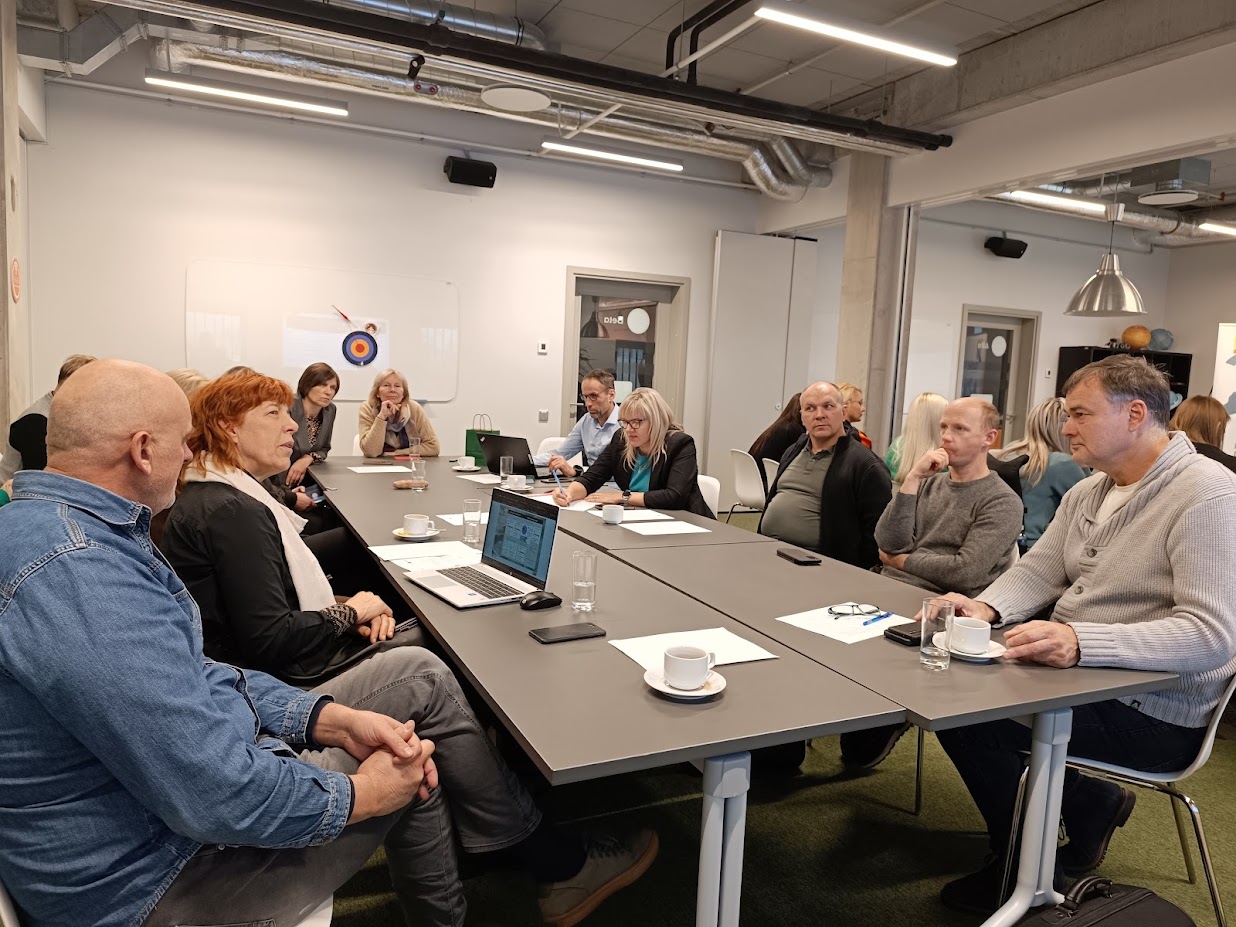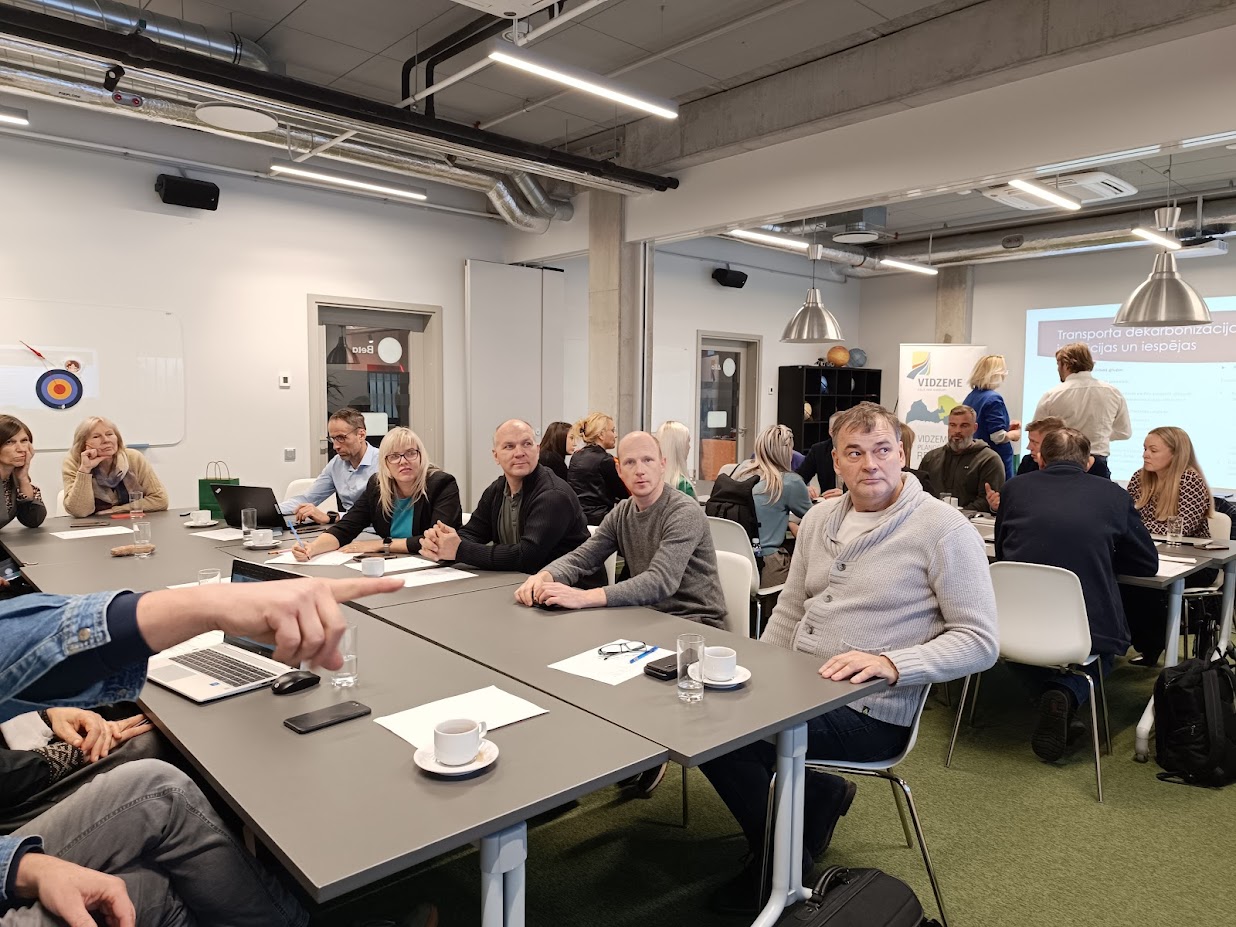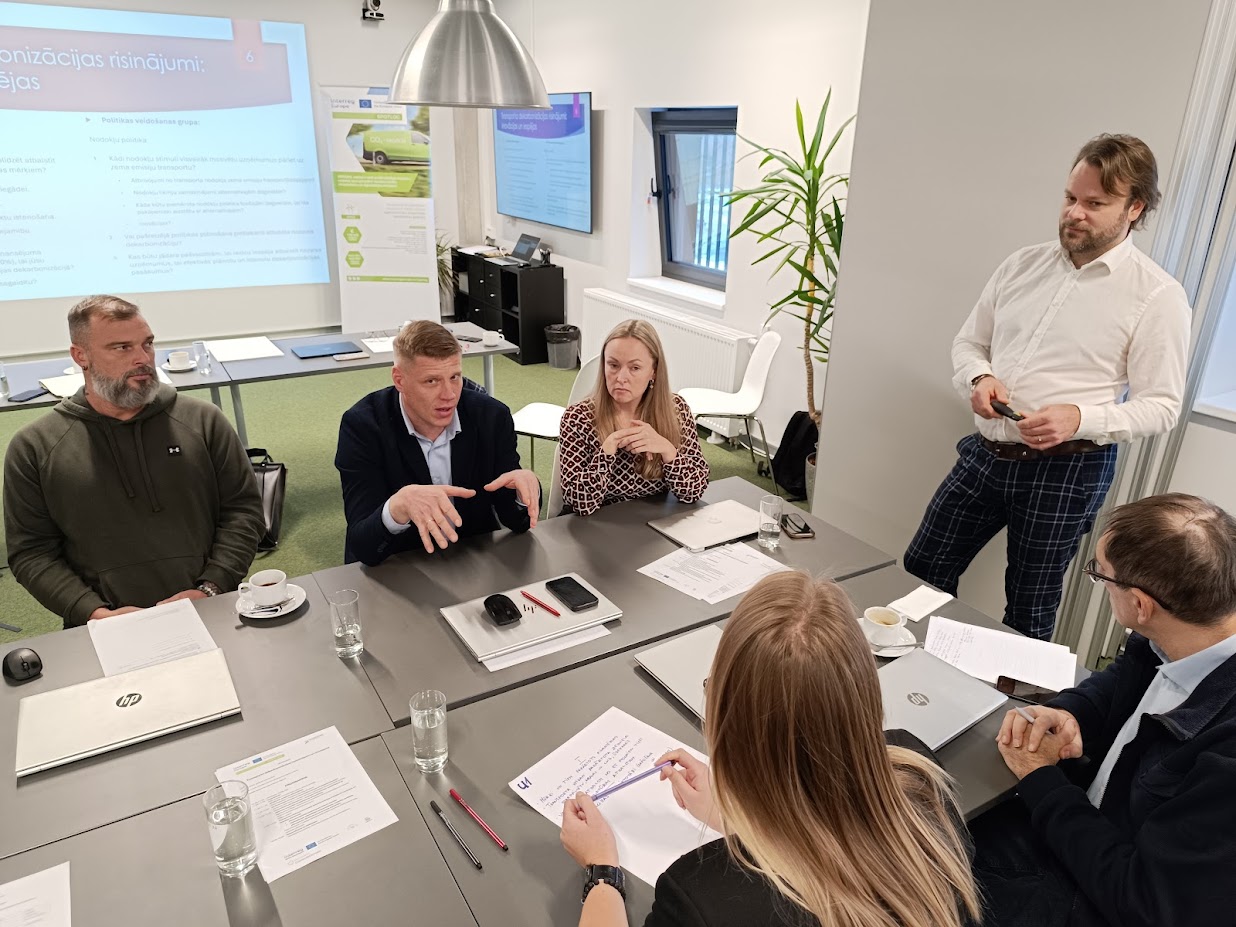On November 22, a seminar titled “Challenges and Solutions for Transport Decarbonization” was held in Cēsis, bringing together industry experts, entrepreneurs, and municipal representatives. The discussions emphasized that reducing emissions in Latvia’s transport sector is critical to achieving the country’s climate goals. However, success depends on the comprehensive integration of policies, societal engagement, and technological tools.
Associate Professor Aiga Barisa from Riga Technical University introduced the CommitClimate simulator, developed under the Interreg BSR project. This tool helps municipalities evaluate current CO2 emissions and predict the impact of various policy scenarios. As Professor Barisa explained, the simulator provides clear insights into the total emission reductions achievable in tons, as well as the consequences of delayed decision-making. Using system dynamics modeling, the simulator operates with minimal input data, leveraging national and centralized datasets to deliver precise results. It not only calculates emissions but also analyzes the impact of policies and other factors on overall outcomes, helping municipalities draft effective climate neutrality plans. This is especially critical for the transport sector, where emissions have a significant impact, yet data on mobility and logistics is often lacking.
SPOTLOG project expert Zane Pīpkalēja emphasized that data-driven decisions are more accurate and resonate better with policymakers, fostering meaningful change. Pīpkalēja also highlighted the need for significant reorganization among municipalities and businesses to meet decarbonization requirements—a process that, while essential, demands substantial financial investment.
During the seminar, Pīpkalēja presented the SPOTLOG project, which aims to develop green and socially responsible logistics systems, reduce carbon emissions, and optimize resource use. She emphasized the importance of enhancing regional policies and cross-sector collaboration for sustainable logistics. The project also showcased effective innovations, such as digital twin technologies, shared mobility services, and innovative delivery models, which significantly reduce emissions and operational costs. The project proposes improvements to regional policy instruments to promote carbon-neutral mobility and inclusive logistics, with a particular focus on the need for Vidzeme’s regional development program to address sustainable urban logistics.
Armands Gūtmanis, head of the Latvian Climate Neutrality Cluster, underlined that transport, like the building sector, poses one of the biggest challenges in implementing climate policies. Gūtmanis warned that Latvia risks financial penalties for failing to meet decarbonization targets, which would ultimately burden taxpayers. He stressed the urgent need for high-capacity charging infrastructure for heavy transport and pointed out that transitioning to electricity or other alternative fuels will require significant subsidies.
The seminar also raised the question of cost-effectiveness in emissions reduction: How much does it cost to save one ton of CO2?
Justs Dimants, economist and lead researcher at the Latvian Climate Neutrality Cluster, led a workshop to facilitate discussions among stakeholders. The workshop aimed to identify key obstacles hindering business progress toward decarbonization and model optimal future scenarios, including necessary tax, subsidy, and infrastructure support mechanisms. Discussions also addressed sector-wide challenges, considering perspectives from both businesses and policymakers.
Participants evaluated the availability of EU funds and proposed ways to improve access to support for businesses. Additionally, they discussed current tax policies and potential incentives to encourage companies to transition to low-emission transport. Infrastructure development received particular attention, with discussions focusing on how private and public sectors could collaborate more effectively.
One example highlighted a specific challenge: businesses in remote regions with small electric vehicle fleets struggle to attract investments for charging stations, while the lack of nearby charging infrastructure discourages fleet expansion—creating a vicious cycle that impedes progress.
Participants suggested enhancing municipal support mechanisms, such as offering property tax reductions for land used to build production facilities or alternative fuel stations. They also agreed that market development requires subsidies for both supply and demand stimulation. A motivating mechanism for municipalities was proposed, such as increasing state budget allocations from the Municipal Financial Equalization Fund for those that effectively achieve decarbonization targets.

